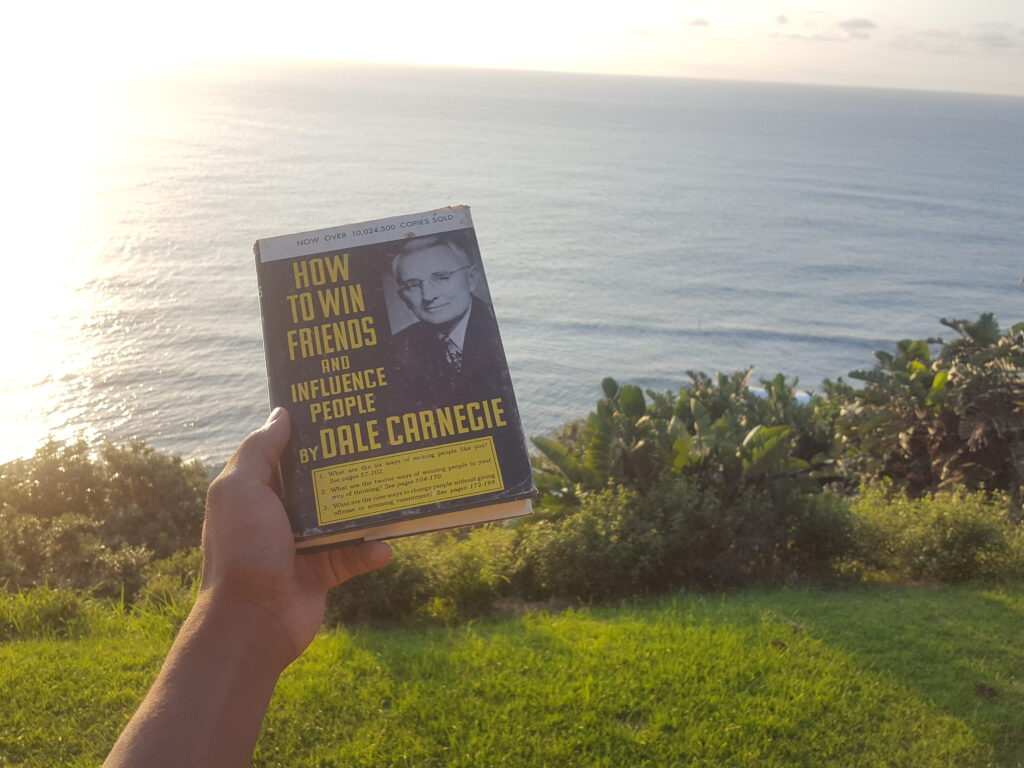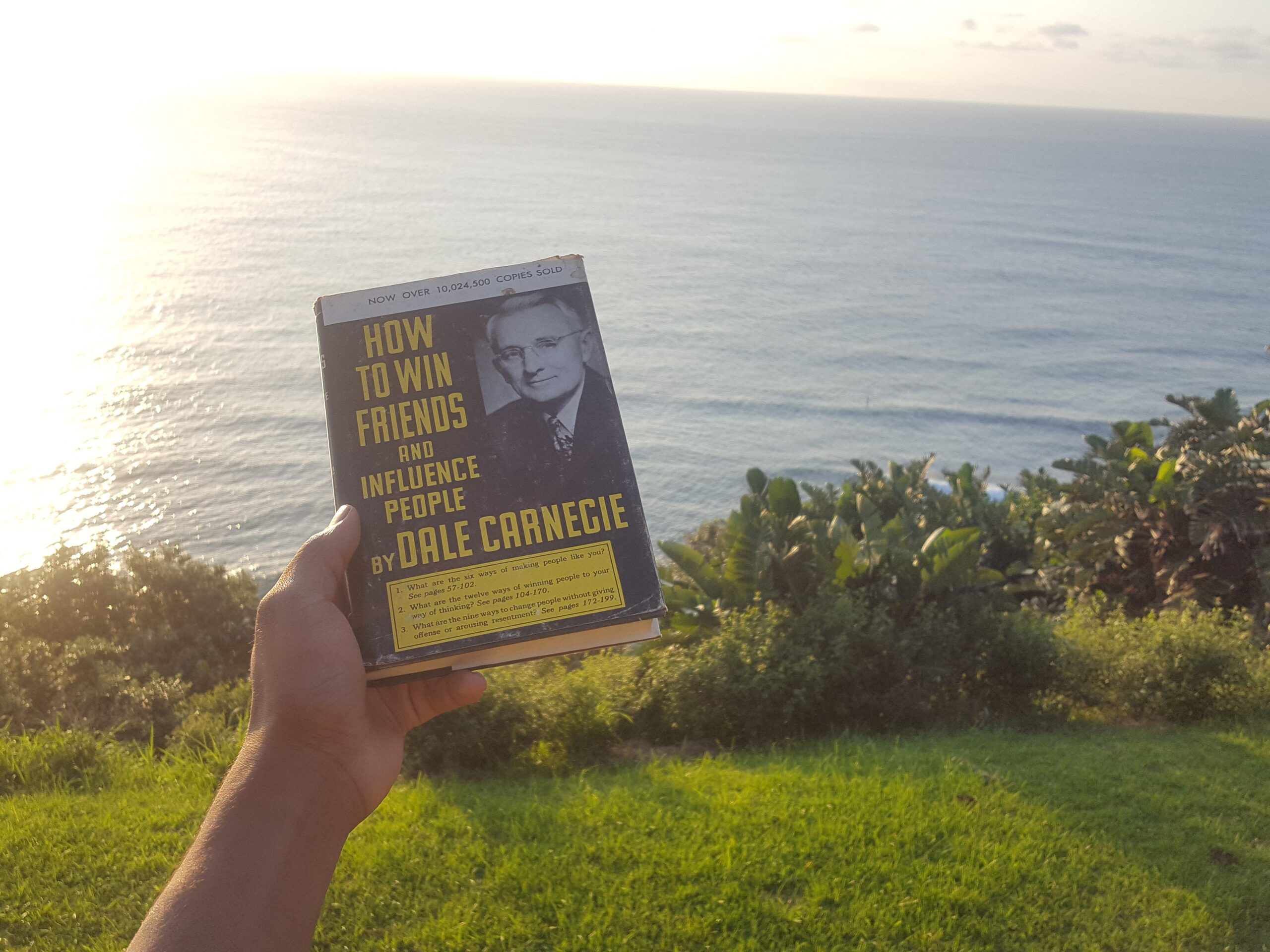
My Experience Reading “How to Win Friends and Influence People” by Dale Carnegie
Reading “How to Win Friends and Influence People” by Dale Carnegie has been a profoundly personal and impactful experience for me, especially considering the tough decisions I’ve had to make throughout my life. I’ve often found myself in situations where I had no support, no resources, and no one to rely on but myself. It was during these times that I realized how essential it was to seek help from others—often strangers—because going it alone simply wasn’t an option. No matter how resolute you are in your dreams and visions, you are going to need the help of other people if you are going to achieve anything great.
Over the past decade, I’ve come to understand more deeply than ever the importance of having the right people in your life. It’s not just about surrounding yourself with anyone; it’s about being deliberate in who you associate with. People of importance are often careful about who they let into their circles, which can make it challenging to build relationships with them. This is where Carnegie’s teachings have been invaluable. He emphasizes the need to project confidence and charisma by speaking about what you know and losing yourself in the topic at hand. This advice has given me the tools to connect with others more effectively, making those essential relationships more accessible.
Carnegie doesn’t just offer general advice; he provides a detailed roadmap for success in both business and life. Here are a few key tools from the book that have been crucial in my journey:
1. Show Genuine Interest in Others
- Importance: Building strong relationships is foundational to success. Dale Carnegie says, “You can make more friends in two months by being interested in them than in two years by making them interested in you.” Your life changes as soon as you start looking outward and genuinely become interested in people. By showing sincere interest, you not only build connections but also become more interesting to others, which in turn opens up opportunities that might have been out of reach.
2. Remember and Use People’s Names
- Importance: A person’s name is, to that person, the sweetest sound in any language. By remembering and using names, you show respect and make others feel valued. This simple act can significantly strengthen your connections and open doors to new opportunities.
3. Be a Good Listener and Encourage Others to Talk About Themselves
- Importance: Listening is a powerful tool for building rapport. But it’s not just about hearing the words; it’s about truly understanding the person. Pay close attention to what they share, observe their choices, and look at what they value. When you “see” them and make them feel heard in the conversation, they will want to talk to you more and more, deepening the connection.
4. Talk in Terms of the Other Person’s Interests
- Importance: When you frame your conversations around what interests the other person, you capture their attention and make them more receptive to your ideas. This is especially important in negotiations, sales, and any situation where you need to persuade others.
5. Make the Other Person Feel Important
- Importance: People have a deep-seated desire for self-regard. When you make someone feel important, when you talk about them and make them feel like the center of the universe, they pay more attention to you. This isn’t about manipulation; it’s about being savvy. If you want someone to know who you are, you must first make them feel like you know them—that you “see” them. This is a powerful tool in building relationships, especially with people who are careful about whom they associate with.
6. Avoid Criticism and Instead, Give Honest and Sincere Appreciation
- Importance: While I don’t fully agree with only giving appreciation or positive feedback, especially when I believe someone is wrong or incorrect, I understand how disagreements can sometimes create too much friction in a relationship, especially when you’re just getting to know someone. In these cases, it’s often more effective to focus on what is positive before saying anything that could potentially offend. This can be seen as a short-term tactic to build rapport and trust.
7. Begin in a Friendly Way
- Importance: Approaching interactions with warmth and friendliness sets the tone for a positive outcome. Whether you’re starting a negotiation, resolving a conflict, or meeting someone new, beginning on a friendly note increases the chances of a successful and harmonious interaction.
8. Admit Your Mistakes Quickly and Emphatically
- Importance: Admitting mistakes shows humility and earns you respect. It also diffuses potential conflicts and allows for quicker resolutions, which is crucial in maintaining good relationships and a positive reputation.
In fact, one of the richest people in the world, Warren Buffett, has a certificate from Dale Carnegie’s public speaking course proudly displayed on his wall, and he values it more than any degree he’s earned. This speaks volumes about the practical, life-changing impact of Carnegie’s work.
I constantly observe successful people unconsciously adopting these principles. It’s something I pick up on only in retrospect, but it seems consistent with every single wealthy person I’ve encountered. They have seamlessly integrated these tools into their interactions, whether they realize it or not.
As for me, I will continue to implement these ideas in my day-to-day life. Conversations have become so much more effortless, and I genuinely enjoy the interactions I have with people daily. Your life isn’t boring when you can have a good conversation with a stranger you meet at the grocery store or while waiting in line at the bank. This book equips you with the tools you need to possess the right high-energy attitude that people are naturally drawn to.
Often, when I’m not in the mood to talk to people or feel uncomfortable, it’s due to bad habits rather than my nature. It’s in our nature to socialize and make connections with people. When you feel down or worried about something, try shifting your focus outward and ask someone how their day was—become interested in them. You’ll see your day improving just from that conversation. It’s a split-second decision, something you can control. In an instant, at the click of a finger, your whole life can change.
